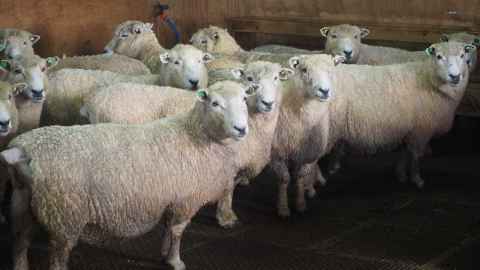Other research facilities
Research involving small and large animal studies must meet stringent welfare, safety and ethics standards.

Some of our research ideas are tested in live animal systems when it is inappropriate to use human subjects. All such work is conducted in accordance with the National Animal Ethics Advisory Committee guidelines and with approval from the institutional animal ethics committee of the University of Auckland.
Aspects of our research require us to use live animals to test hypotheses. We are conscious of our responsibilities and the need for accountability in this area and undertake such studies only when there are no alternative methods.
All our studies comply with current legislation and local and national ethical standards. We strive to minimise the number of animals used and optimise practices that ensure their welfare.
Animal welfare
The use of animals for research or teaching is governed by the Animal Welfare Act. This Act requires all of the University to have a Code of Ethical Conduct which is approved by the Ministry of Agriculture and Forestry (MAF), and to establish an Animal Ethics Committee (AEC) to consider all applications involving the use of animals for Research, Testing and Teaching. Guidance for Animal Ethics Committees is provided by the National Animal Ethics Advisory Committee (NAEAC).
Senior researchers at the Liggins Institute serve on the University of Auckland Ethics Committee, and the head scientist at our Research Farm works closely with the MPI’s Animal Welfare and Behaviour Consultative Committee (AWBCC), the Australian and New Zealand Laboratory Animal Association (ANZLAA), and the Australian and NZ Committee for the Care of Animals in Research and Teaching (ANZCCART).
You can find out more at the following links:
National Animal Ethics Advisory Committee (NAEAC)
Good practice guide for the use of animals in research, testing and teaching
Small animal studies
Institute researchers have established and validated rodent systems for studying the effects of the intrauterine environment on fetal and later life growth and metabolism, reproductive and cognitive development, learning, risks of adult diseases and ageing. Other models mimic complex diseases and conditions such as brain damage (eg, stroke) and cancer.
Research farm for large animal studies
The Liggins Institute also has the Ngapouri Research Farm for the study of sheep nutrition, health and reproductive biology. Studies in sheep are critical for predicting long-term human health outcomes, as sheep pregnancies are similar to human pregnancies, but progress at a more rapid rate. The long-term impact of common pregnancy complications, as well as interventions and treatments, can be assessed in the offspring in a shorter time scale. Synergies also allow cross-species translation that may favour ruminant livestock health and welfare.